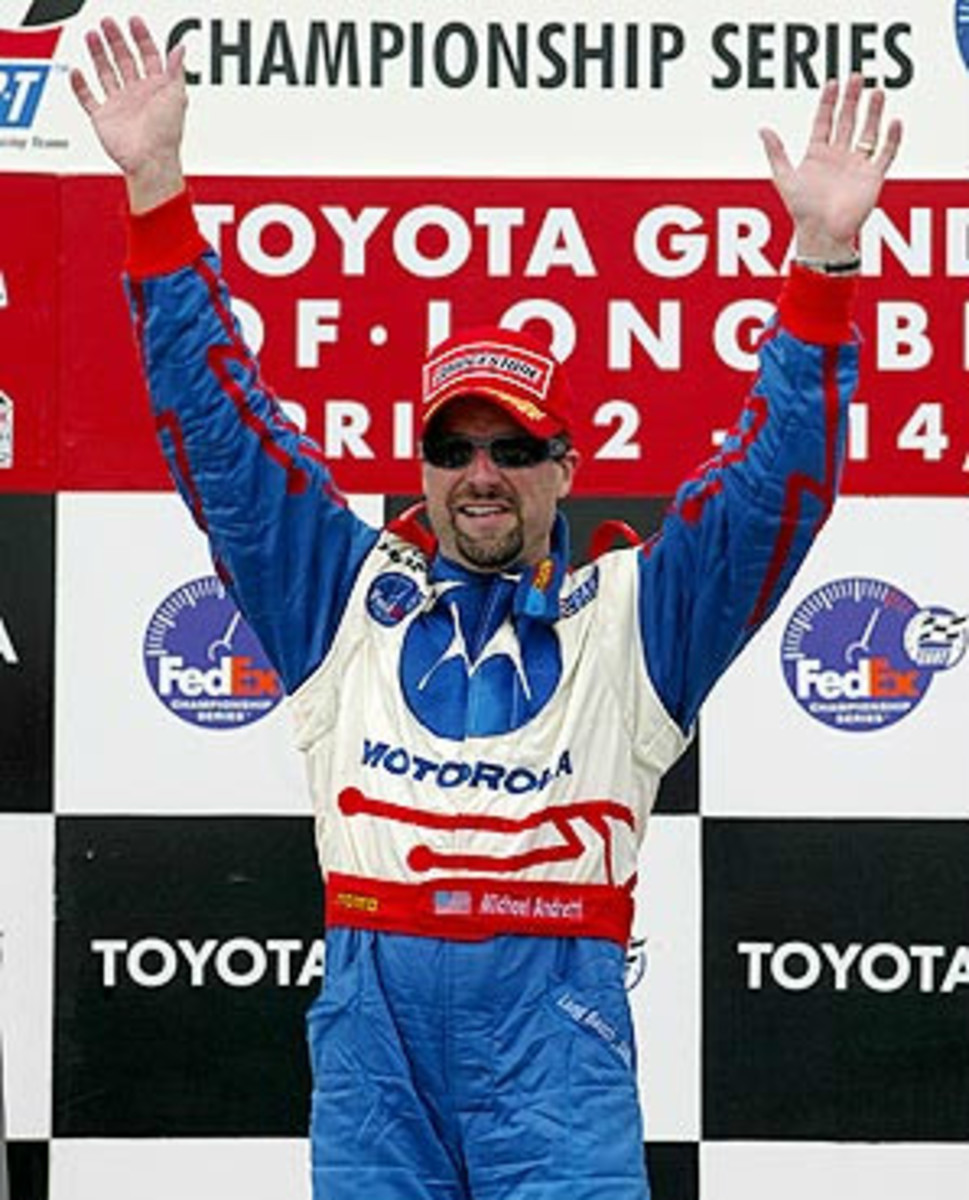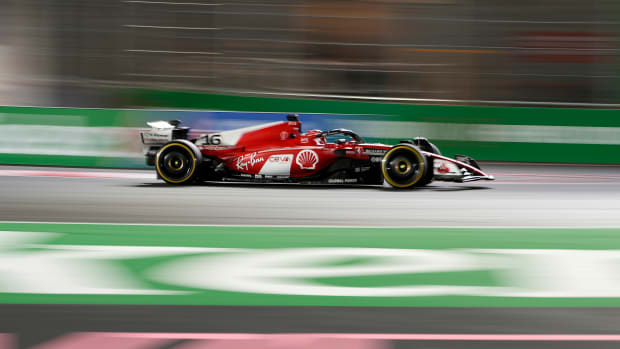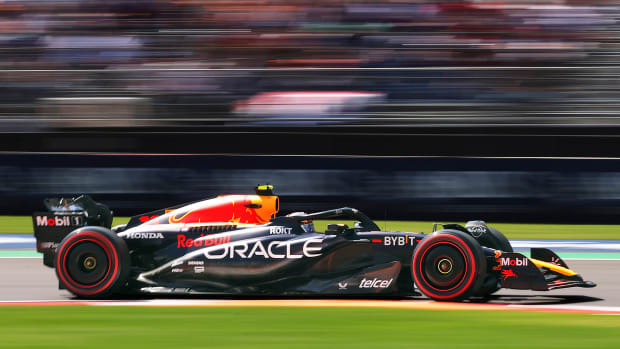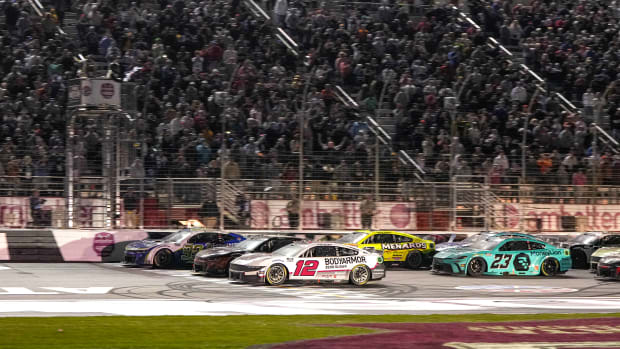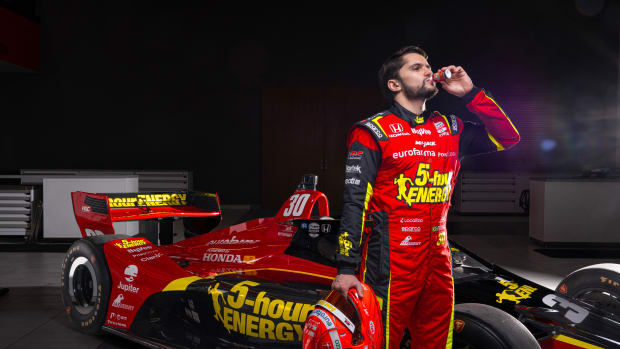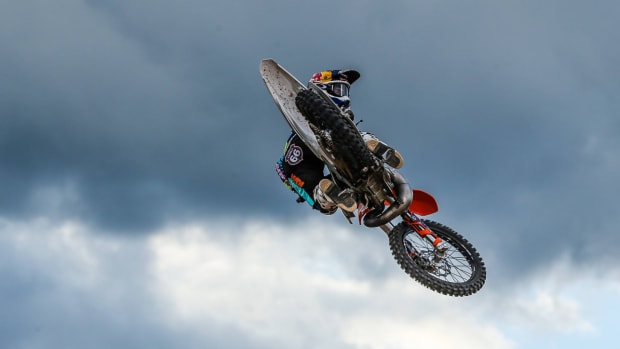Marco Andretti could make history with win at historic Long Beach GP
LBGP founder Chris Pook credits Andretti's triumph with saving the event, taking it from shaky to firm ground. The racing event through the streets of Long Beach runs for the 38th time this weekend, by far the oldest race of its kind in America. It has become a festival of fun with speed and sunshine. The American Le Mans Series is the feature event on Saturday, the IZOD IndyCar Series on Sunday.
The Andretti legacy at Long Beach isn't limited to 1977. Pook's organization was having problems turning a profit despite raceday crowds of 80,000 for F1 in the early 1980s. The contract with F1 ended following the 1983 race and F1 deal maker Bernie Ecclestone was being difficult in negotiations, as he's been known to be. Pook looked for a series that would allow the LBGP to make money and signed a substantially less costly deal to bring CART, then in charge of IndyCar racing, to Long Beach in 1984.
The next year was a nervous time in Long Beach. After eight years of F1, organizers wondered: Would the public accept a series that had traditionally run on ovals? It was the first IndyCar-style race on actual public roads since 1920 at Elgin, Ill.
Andretti had returned from F1 to run full-time in CART in 1982, and he led all 112 laps in a victory that first year. The crowd was down slightly and Andretti's popularity brought it back to F1 levels by the next year. Andretti's 1985 triumph at Long Beach sent the race into a growth period that lasted over 15 years.
The Andretti family wasn't done at Long Beach. In 1986, Michael, in the second race of his third full season, out-dueled Al Unser Jr. for his first IndyCar win. The massive crowd, estimated at 90,000 including those non-paying fans who watched from roof tops and apartments, roared at every turn in the closing laps. Unser caught up in the heavy braking turns, but could never get underneath Andretti to make the pass.
It became the day the next generation took over in IndyCar racing. Unser went on to win the race six times, including four in a row. Michael Andretti's 42nd and last IndyCar win was at Long Beach in 2002.
By then, Long Beach had started a steady decline -- fewer grandstands were built every year -- caused by the ravages of the CART and Indy Racing League (now IndyCar) war and Andretti propped it up. But he was gone the next year, headed for semi-retirement from driving and team ownership in IndyCar.
CART eventually folded after going bankrupt and its successor, Champ Car, threw in the towel in early 2008 and negotiated a merger with IndyCar, which took over Long Beach in 2009.
Long Beach is well into its second rebuilding phase, but it could use a boost to send it soaring to previous heights. A victory by an Andretti -- in this case Marco -- would go a long way to accomplishing that.
But the roles between the Andrettis and Long Beach have flip-flopped in 2012. Marco Andretti needs Long Beach more than the event needs him. It would establish him as a star to win the iconic event.
Marco, Michael's 25-year-old son, is more famous for the race he finished second, the 2006 Indianapolis 500, than the two IndyCar races he's won (Infineon in Sonoma, Calif., in his rookie year of 2006, Iowa Speedway last June).
Marco Andretti has had a good career, but like many drivers who follow in their father and grandfather's footsteps, he suffers from comparisons. Kyle Petty had a productive NASCAR Sprint Cup career with eight wins, but his grandfather, Lee, and father, Richard, are Hall of Famers. Bill Vukovich Jr. raced in the Indianapolis 500 12 times and finished second and third, but his father won the race twice. A.J. Foyt IV showed promise as an oval racer in IndyCar, but as the series mixed in road and street courses, he lacked the experience to compete, and even his grandfather, A.J. Foyt Jr., could not afford to employ him.
Marco Andretti went 77 races between IndyCar wins and has two in 101 starts. He drives for his father's team, Andretti Autosport, and has his job on merit. Marco is attractive to sponsors with the Andretti name and has legitimized his career with two wins.
He made some progress last year with the win at Iowa, a third-place on the road course at Twin Ring Motegi in Japan and fourths at Alabama and Toronto, which, like Long Beach, is a street circuit.
This season, Andretti has started slowly, with a 14th at St. Petersburg and 11th at Barber.
"I want to turn my street-course game around this weekend and go for a win," Andretti said. "I'm super-competitive, so I want to win everywhere and every time ... even if it's a warm-up lap. If they're keeping track of the times, I want to be at the top of the list.
"But it would mean a lot to me to win at Long Beach. I love the track and I love the atmosphere of the event. My family has a lot of history [at Long Beach] and it's a place where my dad got his first and last IndyCar wins, so it would be special to win."
Marco joining Mario and Michael as the third generation of Andrettis to win at Long Beach would be history publicized across the country and around the world. It's not just another race, and Marco would no longer be just another good IndyCar driver capable of winning races.
